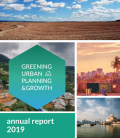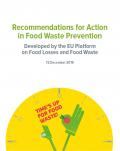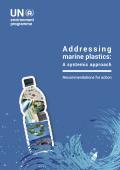This toolkit provides comprehensive information on eight different policy areas that states and localities can consider as they work to reduce food waste. The toolkit can be utilized by legislators, advocates, food donors, and food recovery organizations to call for policy changes.

In 2019, GGGI’s work program on green cities included support for green growth plans and policies, green investments, and capacity building activities and knowledge products across 13 countries. This 2019 Annual Report features stories on green cities from Uganda, Myanmar, Cambodia, Fiji, Lao PDR, Mongolia, Peru, the Philippines, and Rwanda.

The recommendations in this report address action required by public and private players at each stage of the food supply chain, including food redistribution. The recommendations also include a set of horizontal or ‘cross-cutting’ recommendations, which are common across various stages of the food value chain, often involve multiple actors and are needed to achieve the global food loss and waste targets.
This analysis contains a brief description of the mass flows in building construction, a presentation of the (legal) framework conditions, a collection of the relevant terminology and an overview of the state-of-the-art in the demolition of buildings.

This report identifies gaps to address marine plastics at each value chain stage and recommends actions to achieve a circular economy for plastics at the global level.
